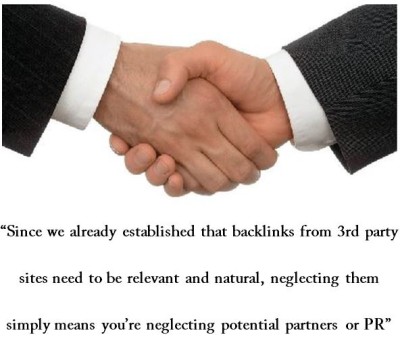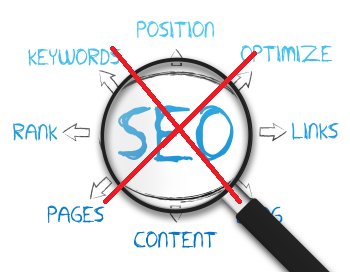
Before I dive into this topic let me clarify what a backlink is: a hyperlink from a 3rd party website to yours. The idea is (or was) the more links you get from other quality websites gives your website more credibility, leading to higher organic rankings. Google has many ways of evaluating quality, part of which is applying a page rank (PR) to every page that’s been indexed online.
Google’s Penguin update in 2012 targeted “link spammers,” or those who attempted to spam other websites by placing links in the comments section of articles or by creating phony forum profiles with links to their website. This specific update expanded upon Google’s previous algorithm updates that targeted “link farms,” or websites built to farm out links (usually at a cost) to other websites.
The Penguin update really hit some websites hard, and rightfully so. Google was cleaning house. The interesting thing that emerged from this is the overreaction from webmasters and SEO people. Suddenly, backlinks are bad, they need to be avoided! 
– social networking websites
– directories
– press releases
– relevant articles on related 3rd party websites
The last example is most subjective. Here’s a good example of what would fit that criteria: a plastic surgery center or medical spa that partners with a high end day spa, and the day spa posts a blog (or a page on their website) about the partnership and the benefits to people. If in that explanation there’s a link to your website that’s perfectly fine. Even if you agree to link to the day spa from your site that’s ok. This is known as a reciprocal link, which is not frowned upon unless they’re spammy (or irrelevant).
Another tip for practices who are receiving a link from another site is to avoid exact match anchor text. For example, if the part of a sentence that is hyperlinked exactly matches one of your top keyword phrases that’s spammy (“New York plastic surgeon”). It’s also unnatural, so try to avoid using anchor text that matches your top keyword phrases verbatim.
The big takeaway here is that backlinks still matter. However, you can’t spam your way to the top of organic search rankings. You want, relevant, natural links from quality websites that are related to your practice in some way. The funny thing is that there are still “SEO people” who spam web forms of cosmetic practices promising 100 backlinks per month and #1 rankings and rainbows & sunshine! I can’t help but think, is this 2004? Are these people serious? My advice to a practice who’s had a bad experience with SEO companies or are reviewing SEO proposals is to never, ever use the quantity of links mentioned in the proposal as a barometer for comparison. More backlinks may even hurt your practice.
On the flip side there are people who now think all backlinks are bad. This is at best naive, and at worst foolish. Since we already established that backlinks from 3rd party sites need to be relevant and natural, neglecting them simply means you’re neglecting potential partners or PR. Why would any business do that?
I’d love to hear your thoughts on backlinks, as well as any tips you have to share, so please feel free to leave a note in the comments section. To learn more about how you can grow your backlinks just leave TRBO a note here or call 877-673-7096 x2.







